Get the L.A. Times Politics newsletter
Deeply reported insights into legislation, politics and policy from Sacramento, Washington and beyond. In your inbox twice per week.
You may occasionally receive promotional content from the Los Angeles Times.
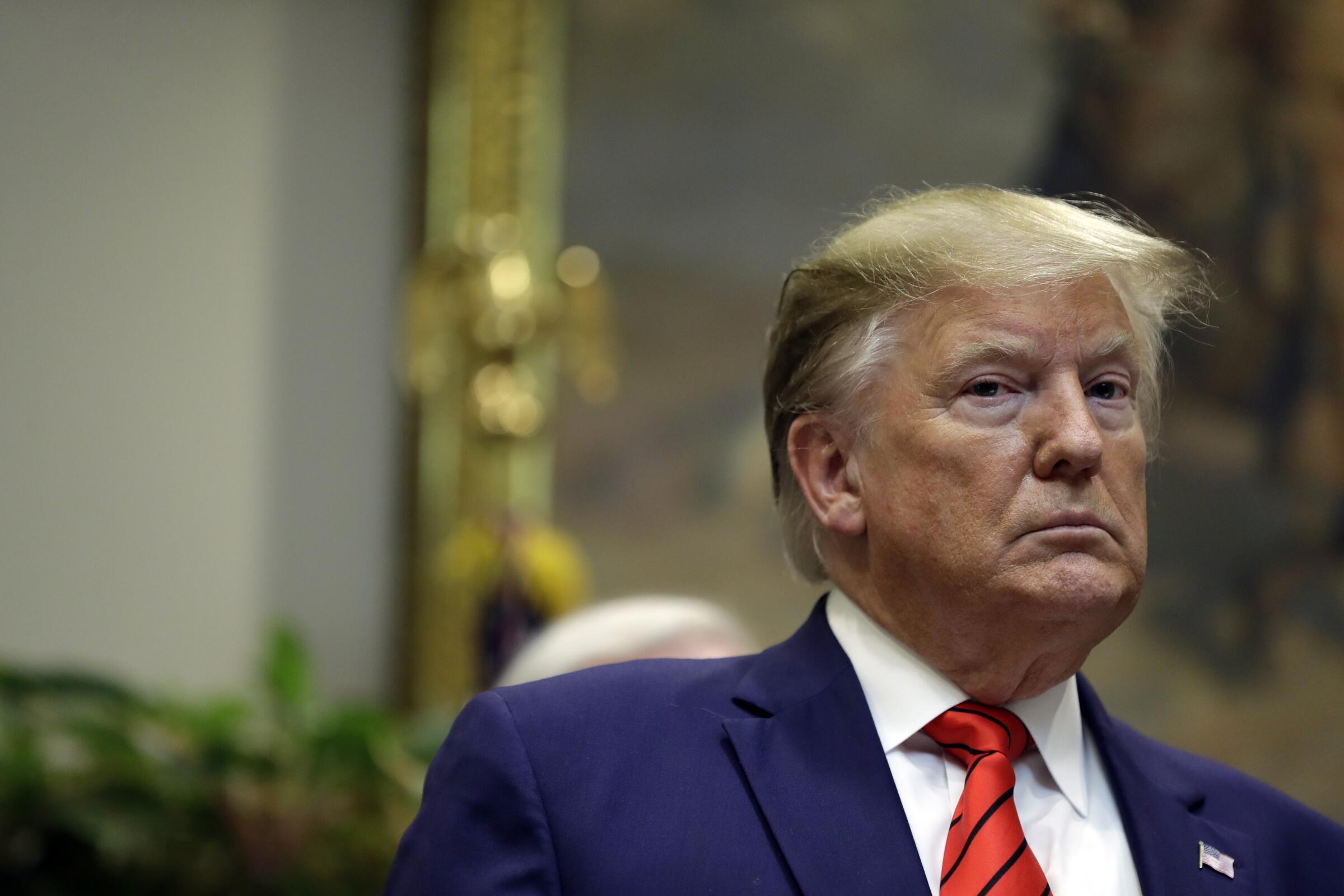
WASHINGTON — Three House committees have issued subpoenas, scheduled depositions and set deadlines for documents as investigators gather information on whether President Trump improperly pressured Ukraine to investigate a political rival in exchange for U.S. military aid.
Philip Reeker, acting assistant secretary of European and Eurasian affairs at the State Department, is scheduled to appear for a deposition on Saturday. Reeker would be another diplomat to testify in the probe who could shed light on Trump’s actions in Ukraine. In previous interviews, former Ambassador Yovanovitch testified that Trump was behind the decision to abruptly recall her from Kyiv. The former White House advisor on Russia, Fiona Hill, also testified about Giuliani’s involvement in Ukraine and reportedly said she had strongly objected to the removal of Yovanovitch.
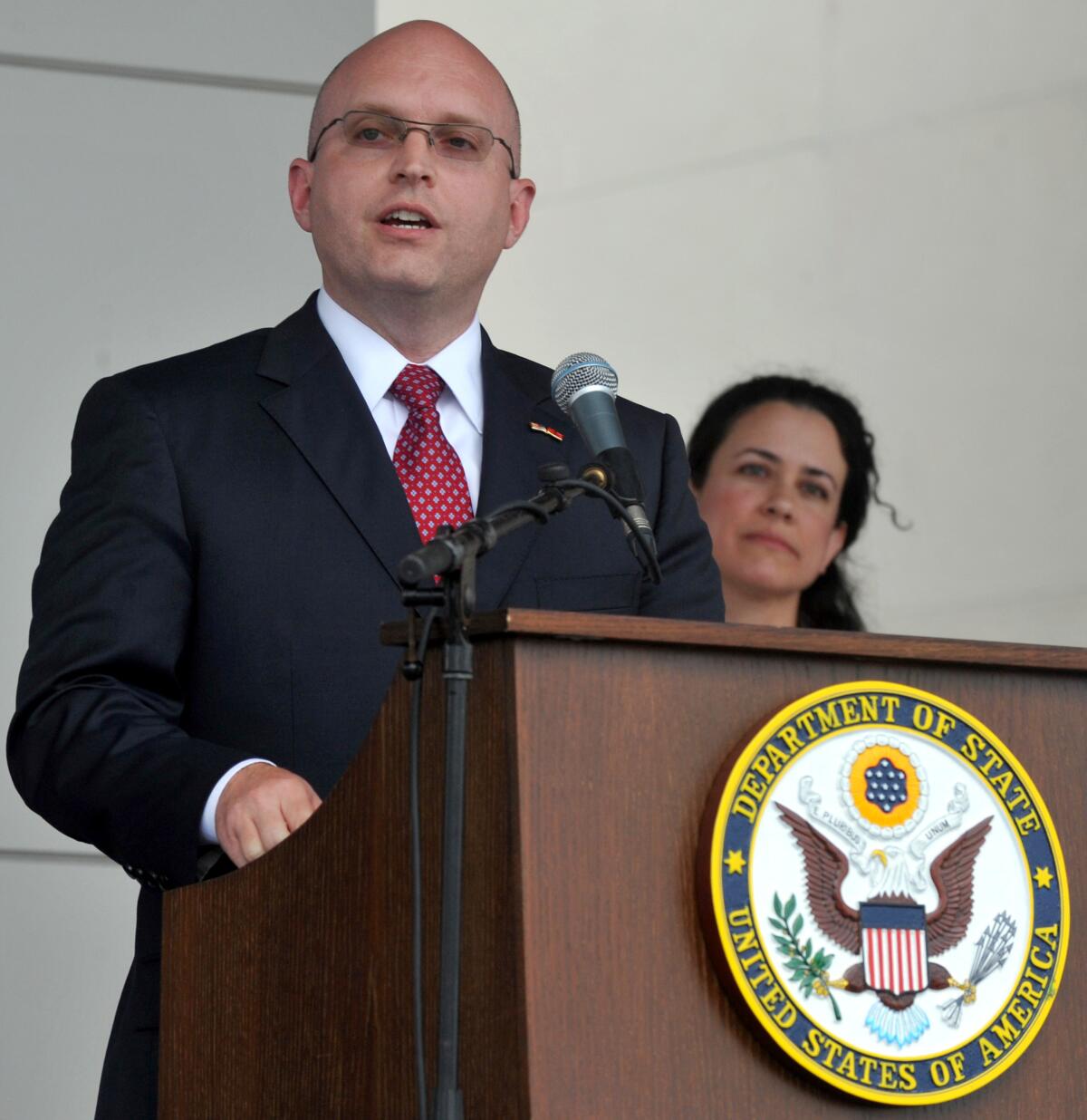
Here’s a look at what else is ahead. For more context, please review our timeline of the inquiry as well as our guide to people and terms to know. You can also subscribe our impeachment-focused list of deposition dates, subpoena deadlines and testimony times to add them to your iOS or Google calendar.
Charles Kupperman, former deputy assistant to the president for national security affairs
Kupperman, who served as a deputy to national security adviser John Bolton before he stepped into the acting role after Bolton’s ouster, is scheduled to appear for a closed-door interview with lawmakers. Although he is no longer part of the administration, it is possible he was on the July 25 call between President Trump and Ukraine’s president that is part of the investigation.
Deposition: Lt. Col. Alexander Vindman, director of European Affairs for the National Security Council
Vindman, who was part of the Trump administration delegation that attended the inauguration of Ukrainian President Volodymyr Zelensky earlier this year, is scheduled to be deposed as part of the investigation.
Deposition: Kathryn Wheelbarger, acting assistant secretary of Defense for international security affairs
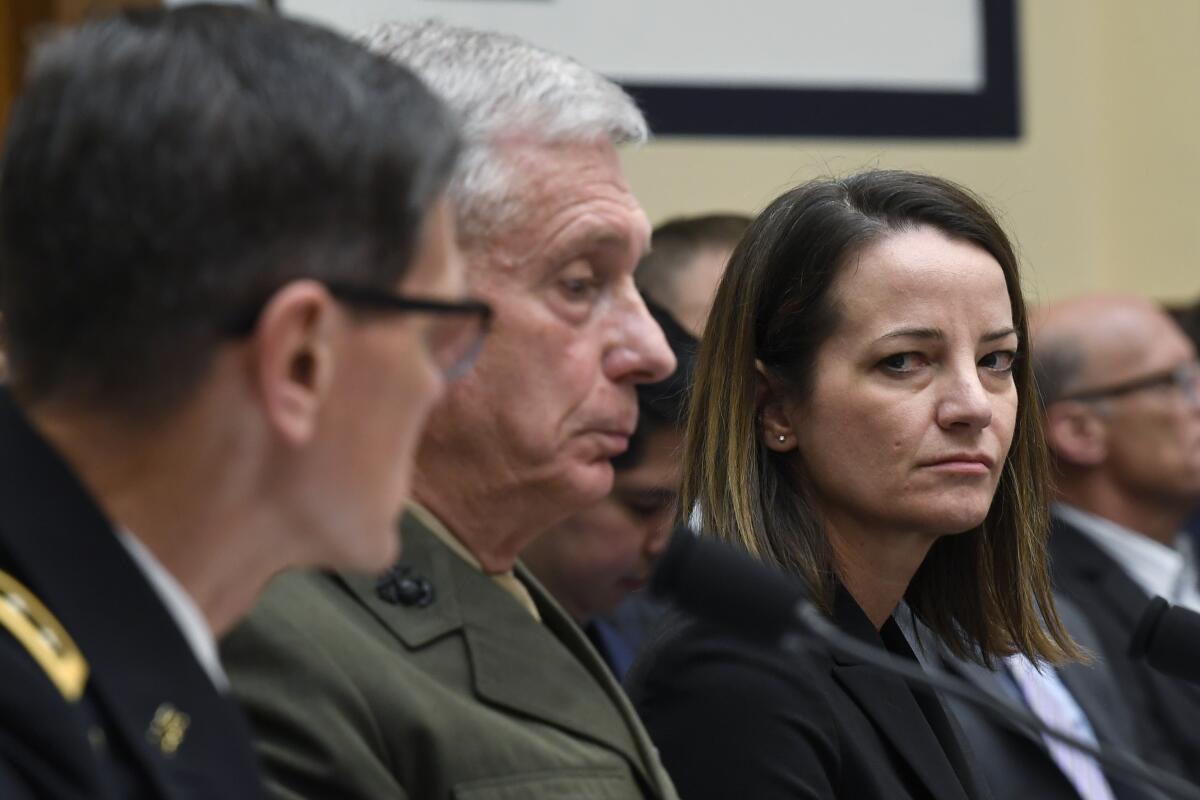
Wheelbarger oversees policy issues related to Europe and Russia, among other regions.
Deposition: Timothy Morrison, Russia and Europe director for the National Security Council
Morrison, who also serves as a special assistant to the president, is scheduled to testify. If Morrison appears for the deposition, he will be the first White House aide to testify after the Trump administration said it would not cooperate with the inquiry.
Michael Atkinson, the intelligence community’s inspector general
Atkinson testified at a closed-door meeting of the House Intelligence Committee on Sept. 19. He testified before the committee again Oct. 4.
Joseph Maguire, the acting director of national intelligence
Maguire was subpoenaed to appear before the House Intelligence Committee. He testified publicly on Sept. 26.
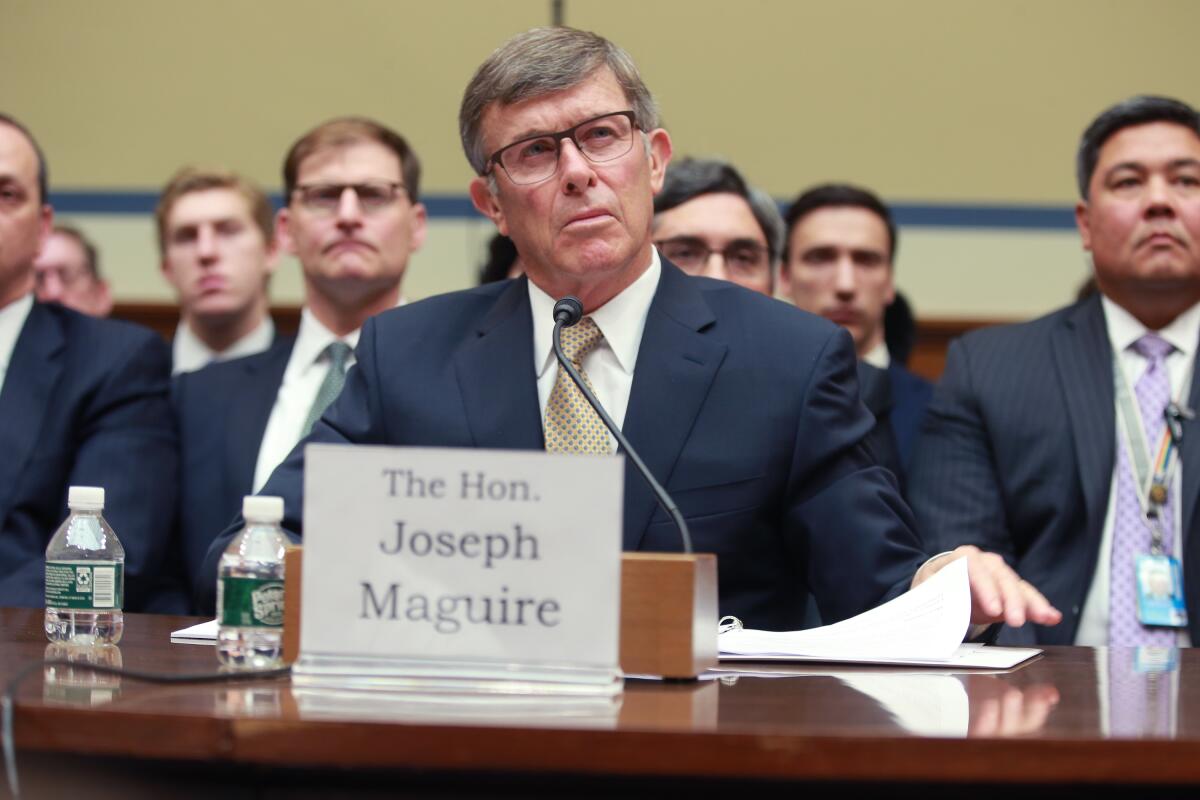
Steve Linick, State Department inspector general
Linick briefed legislative staff behind closed doors on Oct. 2, and he turned over a packet of what Rep. Jamie Raskin (D-Md.), a member of the House Judiciary and Oversight committees, described as conspiracy theories about Ukrainian involvement in the 2016 election that had apparently been sent to Secretary of State Mike Pompeo.
Kurt Volker, a former U.S. ambassador to NATO
Volker resigned, met with investigators on Oct. 3 and turned over text messages and documents.
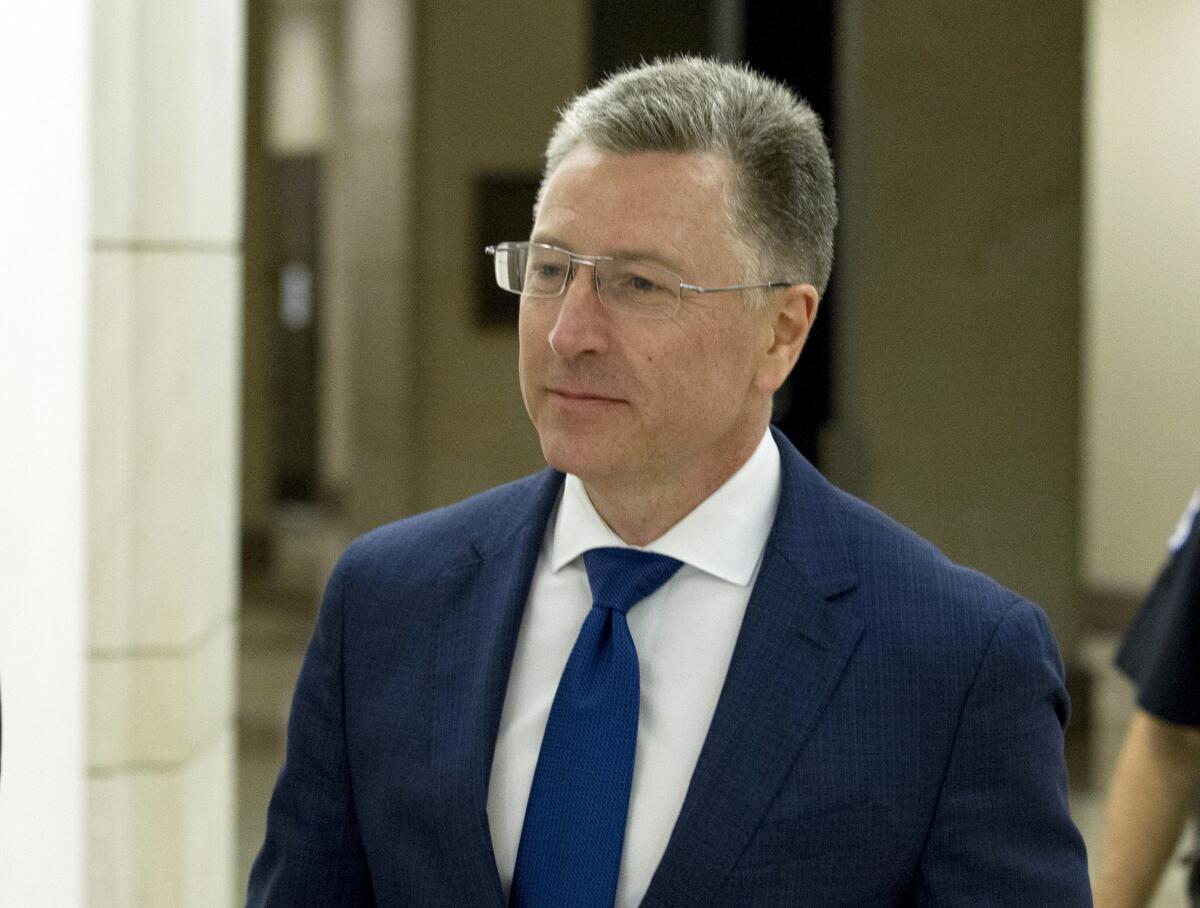
Secretary of State Michael R. Pompeo
Pompeo was subpoenaed to deliver documents by Oct. 4 but he missed the deadline. He told reporters that the State Department intends to follow the law in the probe. Pompeo also objected to House Democrats’ requests for depositions from current and former State officials.
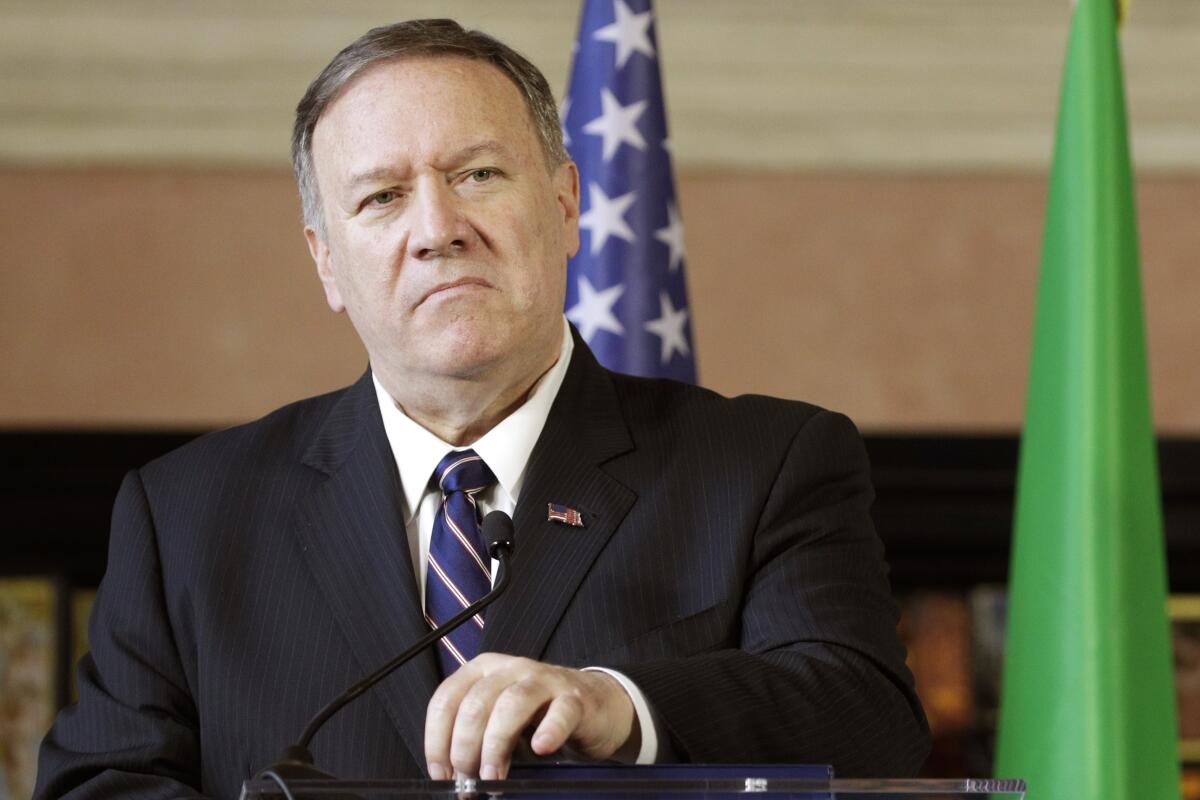
Two business associates of Rudolph W. Giuliani, the president’s personal lawyer
Lev Parnas and Igor Fruman, Soviet-born political donors who helped in Giuliani’s efforts to investigate Democrat Joe Biden in Ukraine, were arrested Oct. 9 on campaign finance charges, including funneling Russian money to President Trump’s 2020 campaign. Before the arrests, they signaled that they would not agree to give voluntary depositions or turn over documents to the House committees conducting the impeachment inquiry. They were then subpoenaed for documents.
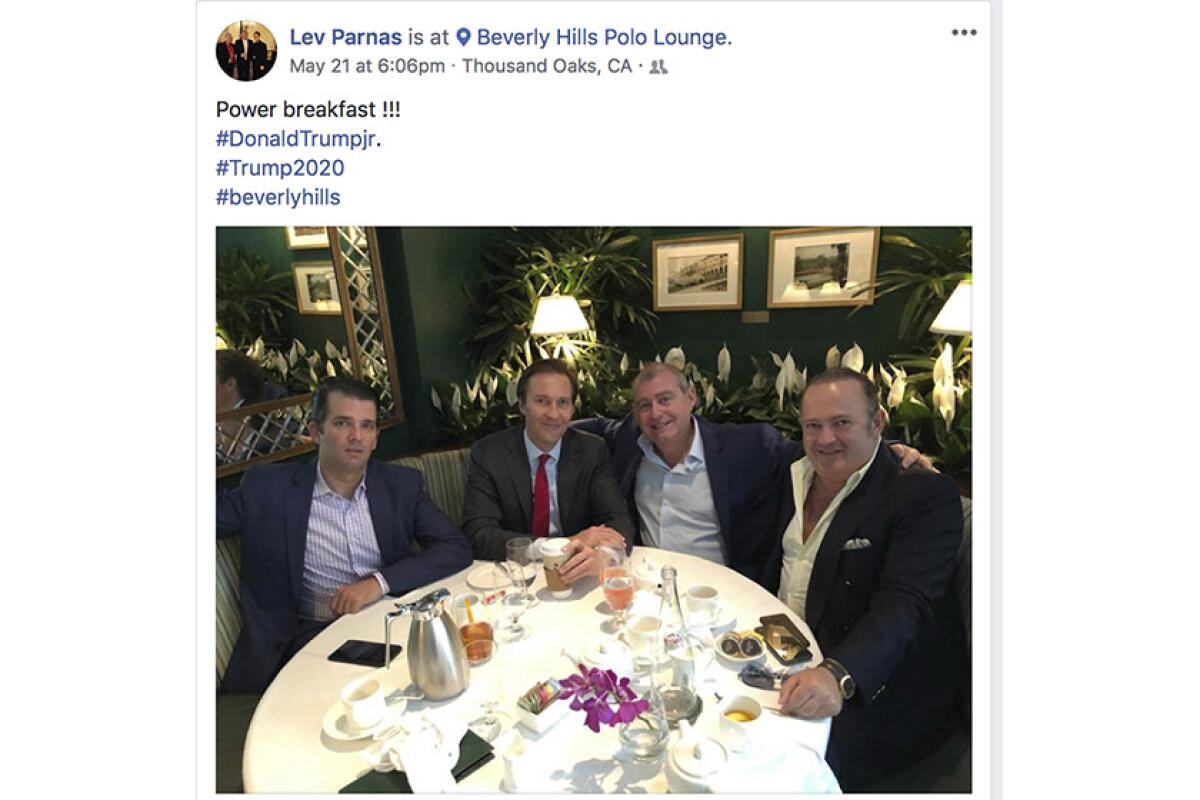
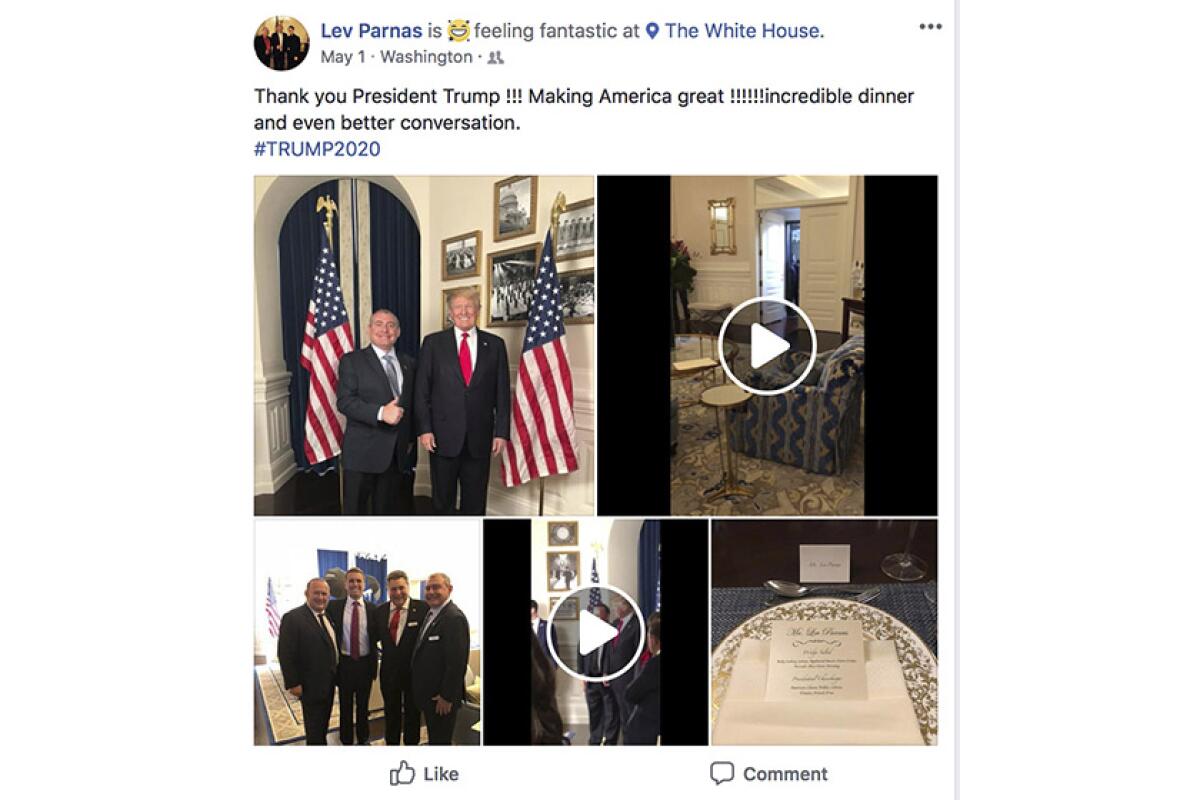
Marie Yovanovitch, former U.S. ambassador to Ukraine
Defying White House efforts to block her testimony, Yovanovitch met with lawmakers on Oct. 11.
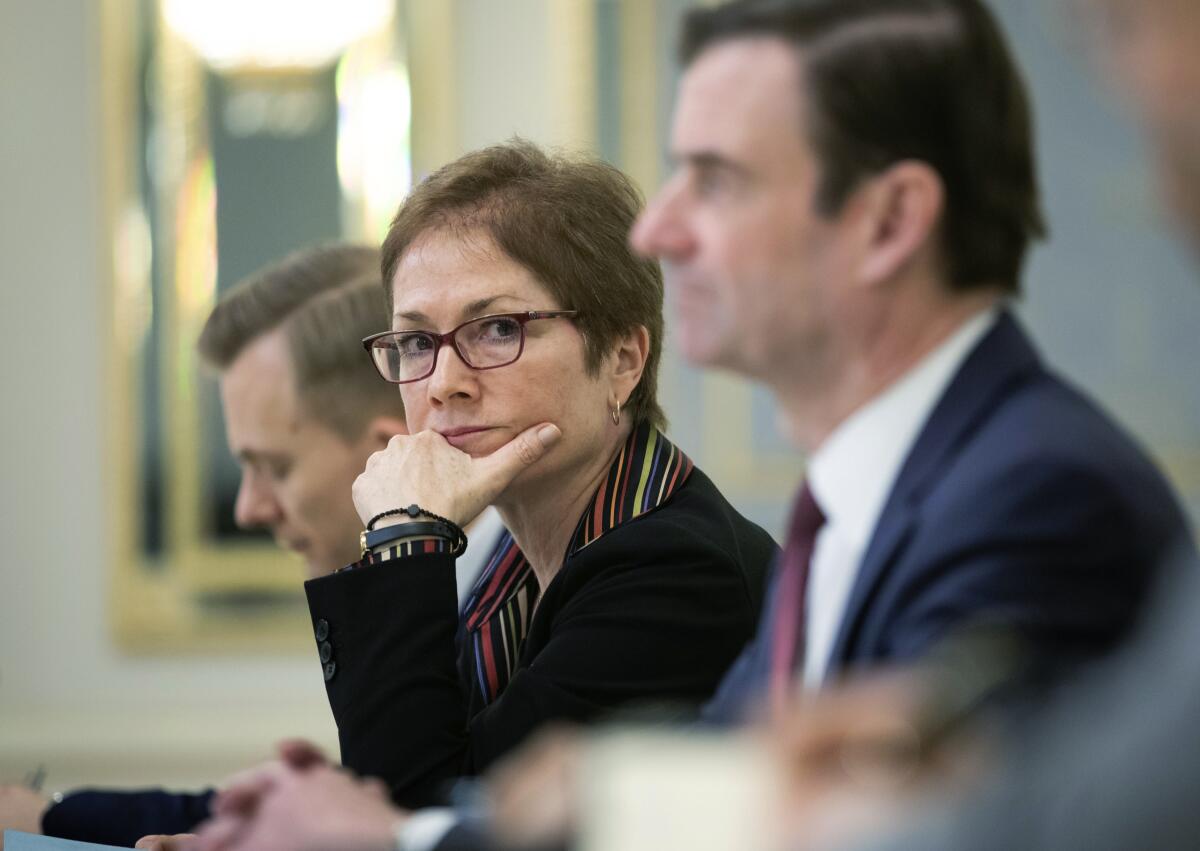
Semyon ‘Sam’ Kislin
Kislin was summoned by investigators to produce documents and voluntarily appear for a deposition on Oct. 14 because of his ties to Rudolph W. Giuliani, the president’s personal lawyer. The businessman, his attorney told CNN, was “being cooperative” and had “reached an understanding” to avoid a closed-door deposition.
Fiona Hill, a former White House advisor on Russia
Hill testified Oct. 14 behind closed doors for more than 10 hours. A person familiar with the testimony said Hill told impeachment investigators she had strongly objected to the ouster of Yovanovitch.
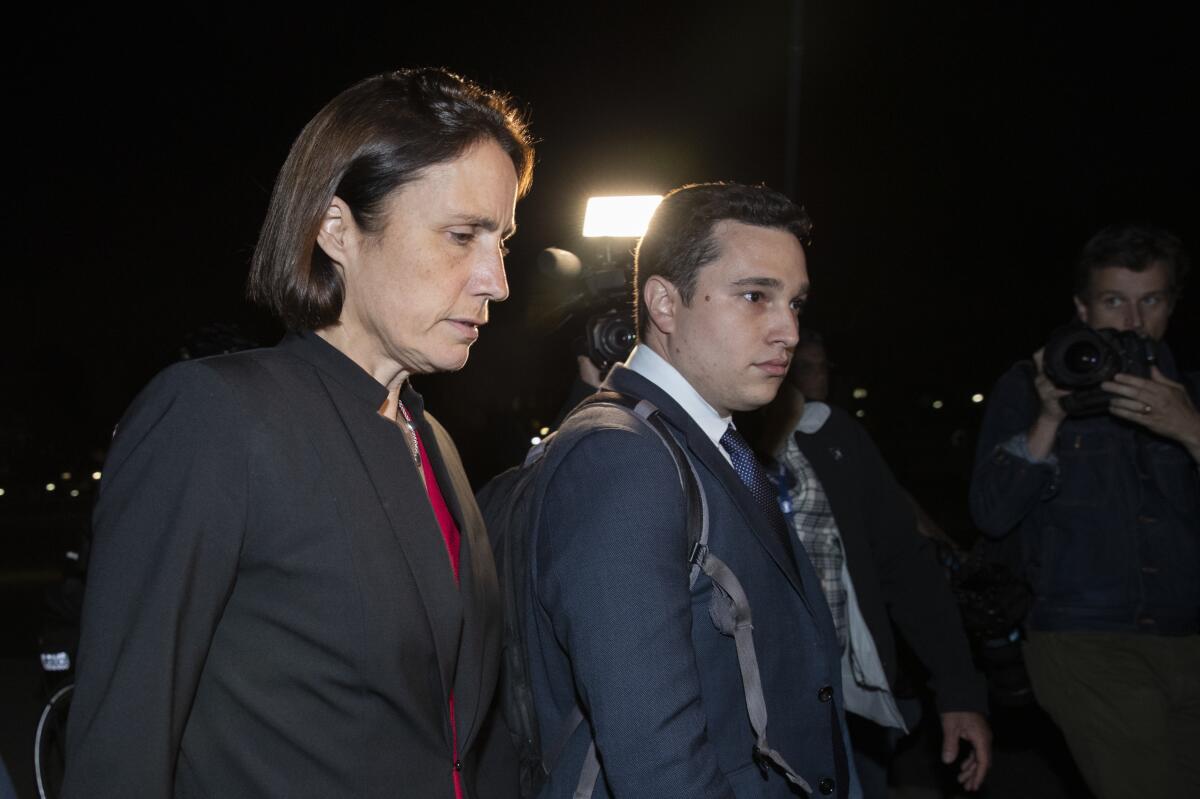
George Kent, the deputy assistant secretary of State responsible for Ukraine
Kent testified on Oct. 15.
Vice President Mike Pence
Pence, facing a deadline request of Oct. 15 for documents, refused to comply.
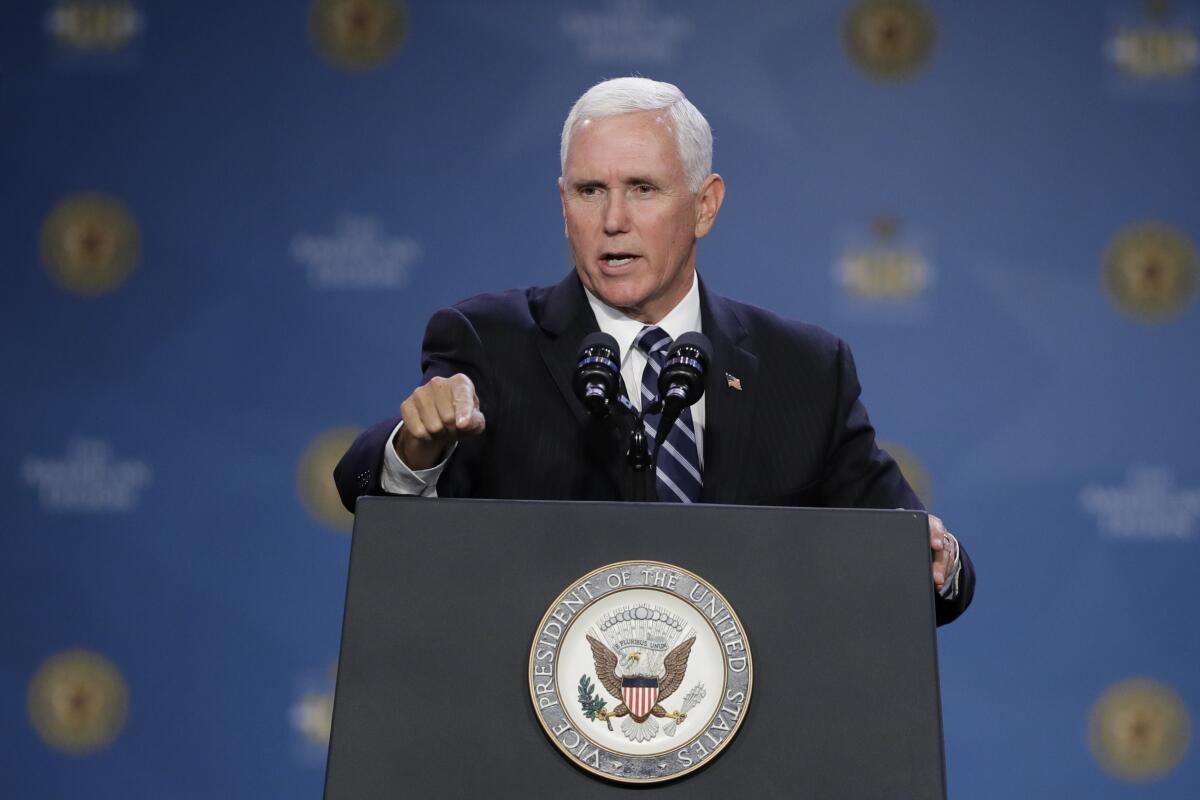
Russell Vought, acting White House budget director
Vought did not comply with a subpoena for documents by the Oct. 15 deadline.
Secretary of Defense Mark Esper
Esper, who oversees the Pentagon, did not respond to a subpoena for documents by the Oct. 15 deadline.
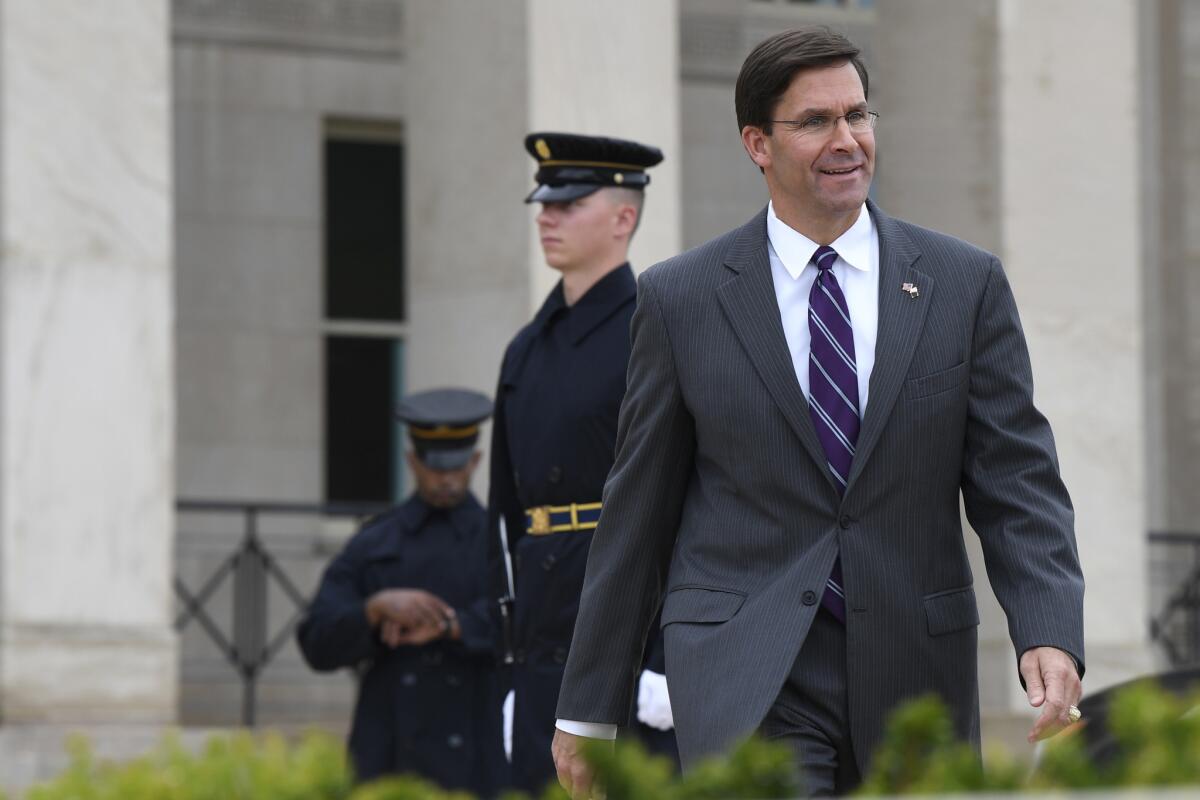
Michael McKinley, a former top aide to Secretary of State Pompeo
McKinley, Pompeo’s de facto chief of staff who recently resigned, testified on Oct. 16.
Gordon Sondland, U.S. ambassador to the European Union
House Democrats had subpoenaed Sondland to testify after the Trump administration blocked him from giving a voluntary deposition. The order was also intended to force the top diplomat to turn over documents and text messages — apparently from a private device — regarding Trump’s dealings with Ukraine by Oct. 14, but Sondland’s lawyer said federal law and State Department regulations prohibited his client from doing so. On Oct. 17, Sondland testified before House Democrats.
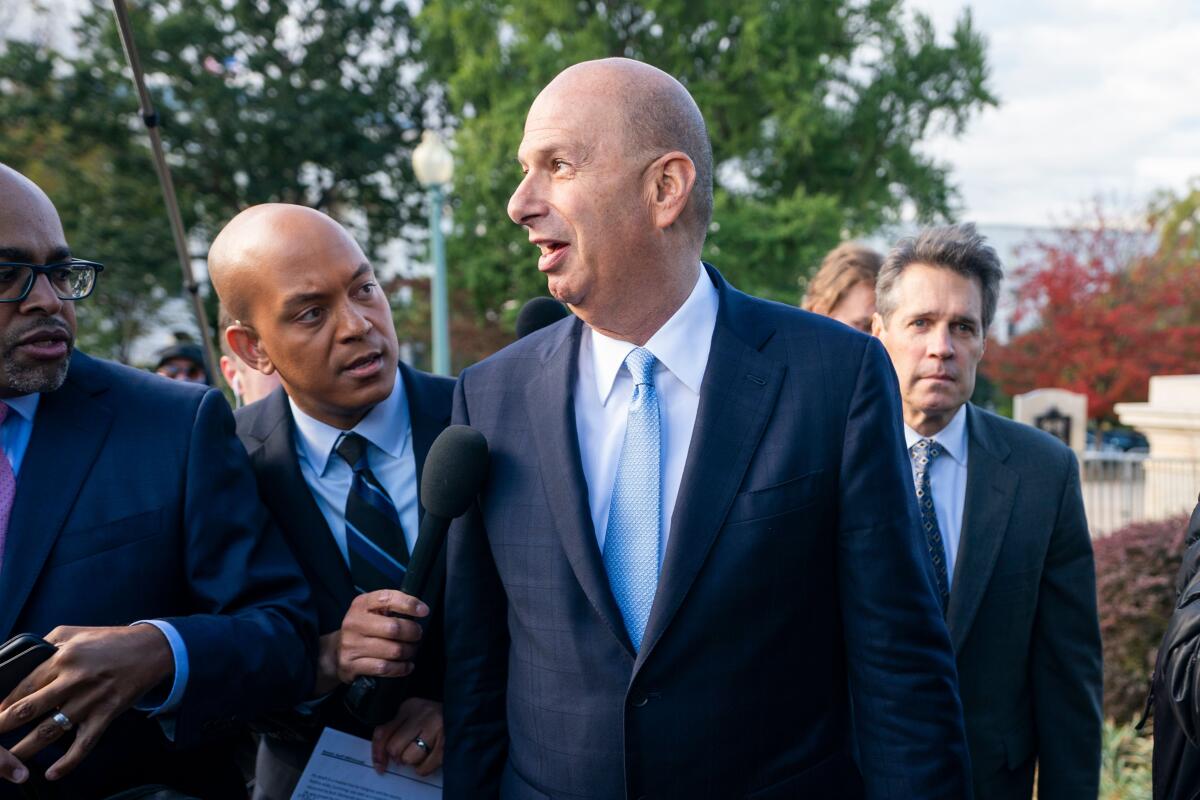
White House via Mick Mulvaney, acting chief of staff
Investigators subpoenaed the White House for documents in one of the most significant escalations of the impeachment inquiry. Democrats wrote in a letter to Mulvaney: “The White House has refused to engage with — or even respond to — multiple requests for documents from our committees on a voluntary basis. After nearly a month of stonewalling, it appears clear that the president has chosen the path of defiance, obstruction and cover-up.”
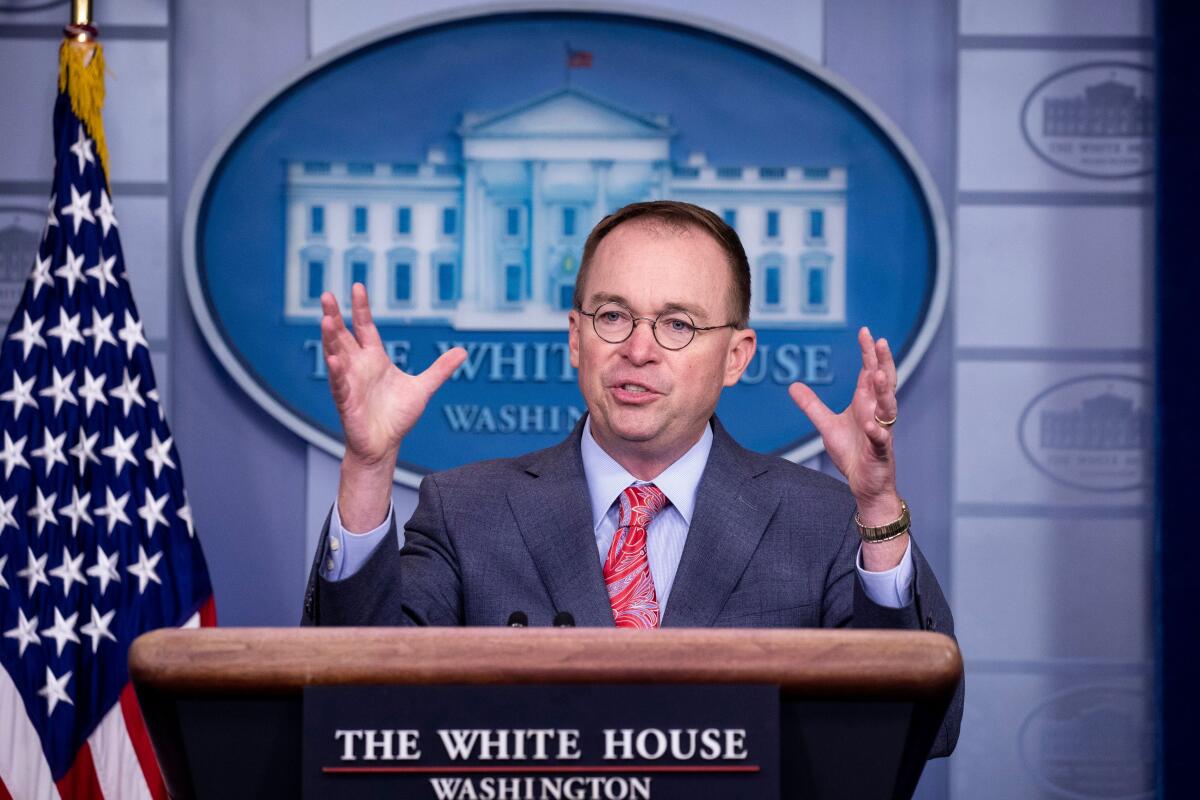
Rick Perry, Energy secretary
Perry was subpoenaed for documents on Oct. 10. “Recently, public reports have raised questions about any role you may have played in conveying or reinforcing the President’s stark message to the Ukrainian President,” the investigators wrote. “These reports have also raised significant questions about your efforts to press Ukrainian officials to change the management structure at a Ukrainian state-owned energy company to benefit individuals involved with Rudy Giuliani’s push to get Ukrainian officials to interfere in our 2020 election.”
On Oct. 17, Perry told President Trump he planned to resign.
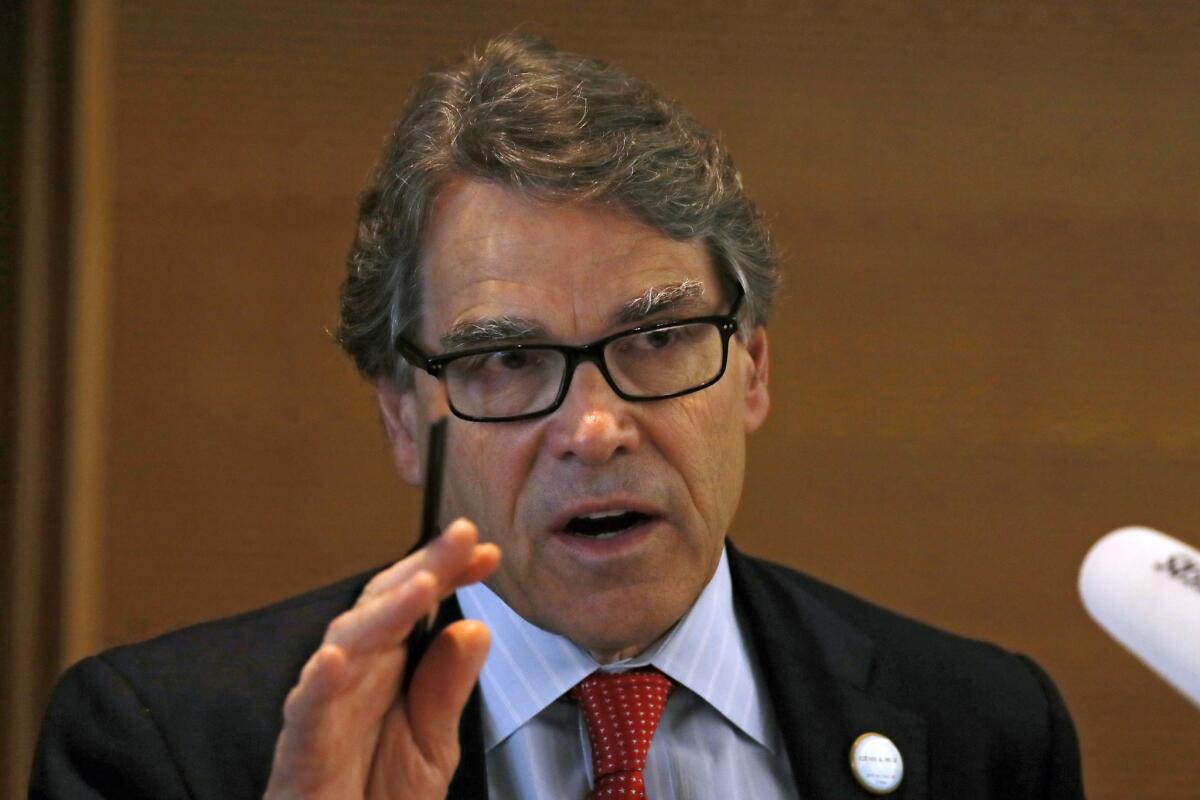
William “Bill” Taylor, acting U.S. ambassador to Ukraine
Taylor testified Tuesday morning in a voluntary deposition. The top U.S. diplomat had raised concerns in text messages about the executive branch’s actions in Ukraine, including that he thought it was “crazy to withhold security assistance for help with a political campaign.”
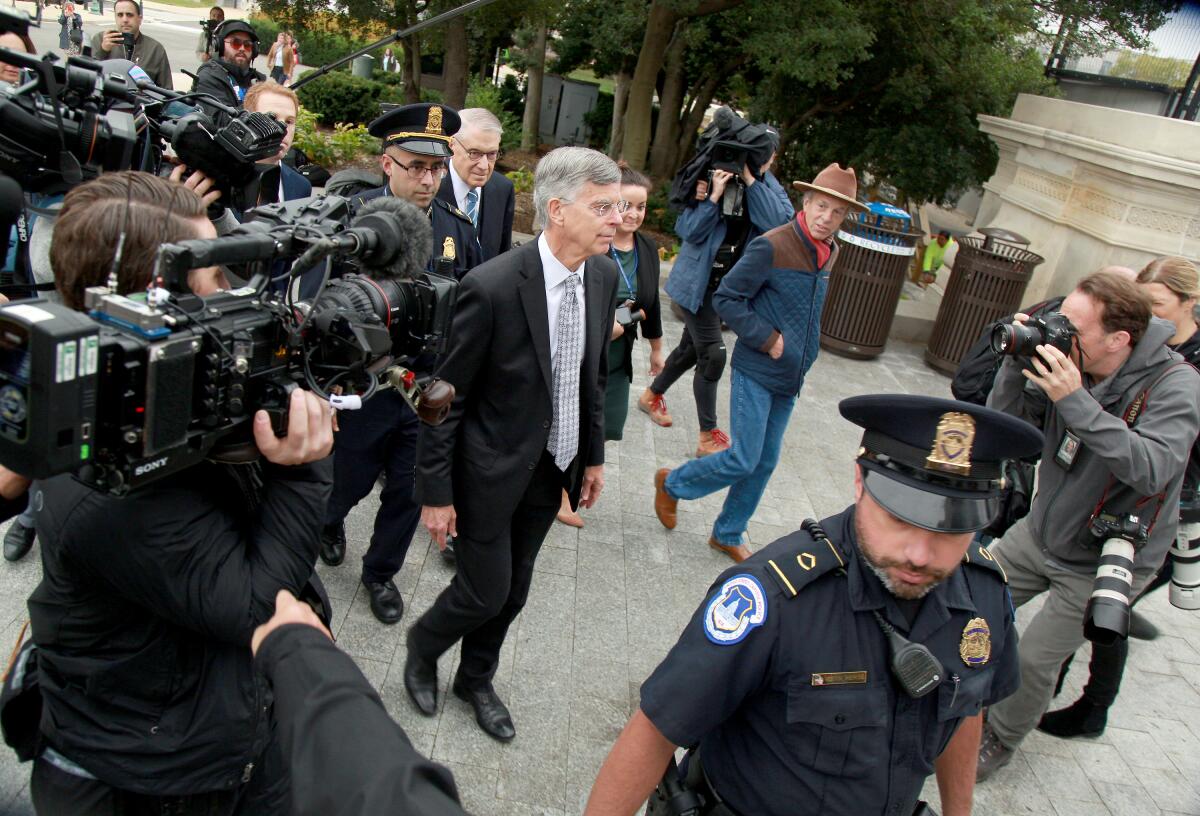
Deputy Assistant Secretary of Defense Laura Cooper
Cooper, who is responsible for policy concerning Russia and Ukraine, appeared for a deposition on Wednesday. Two dozen Republicans crashed the closed-door session, delaying it by several hours.
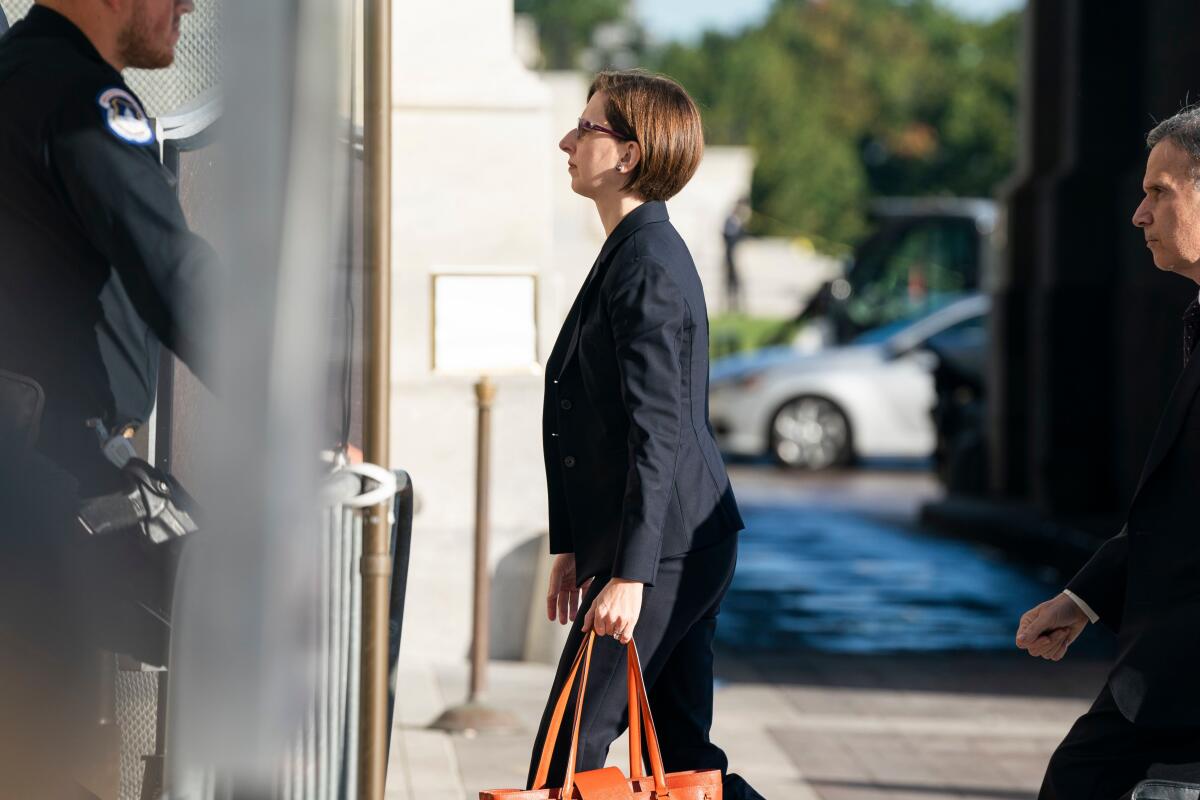
The Associated Press contributed to this report.
Get the L.A. Times Politics newsletter
Deeply reported insights into legislation, politics and policy from Sacramento, Washington and beyond. In your inbox twice per week.
You may occasionally receive promotional content from the Los Angeles Times.